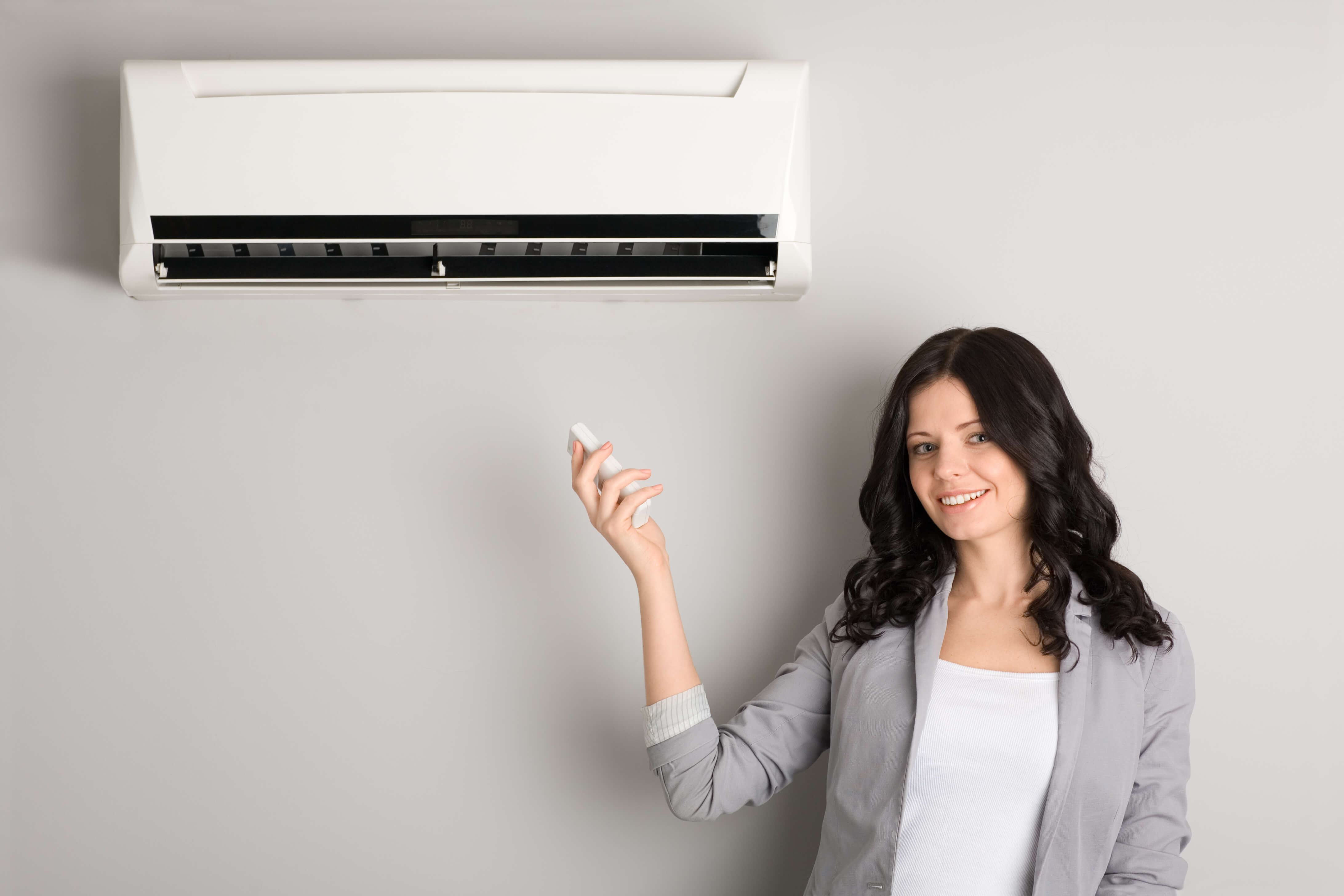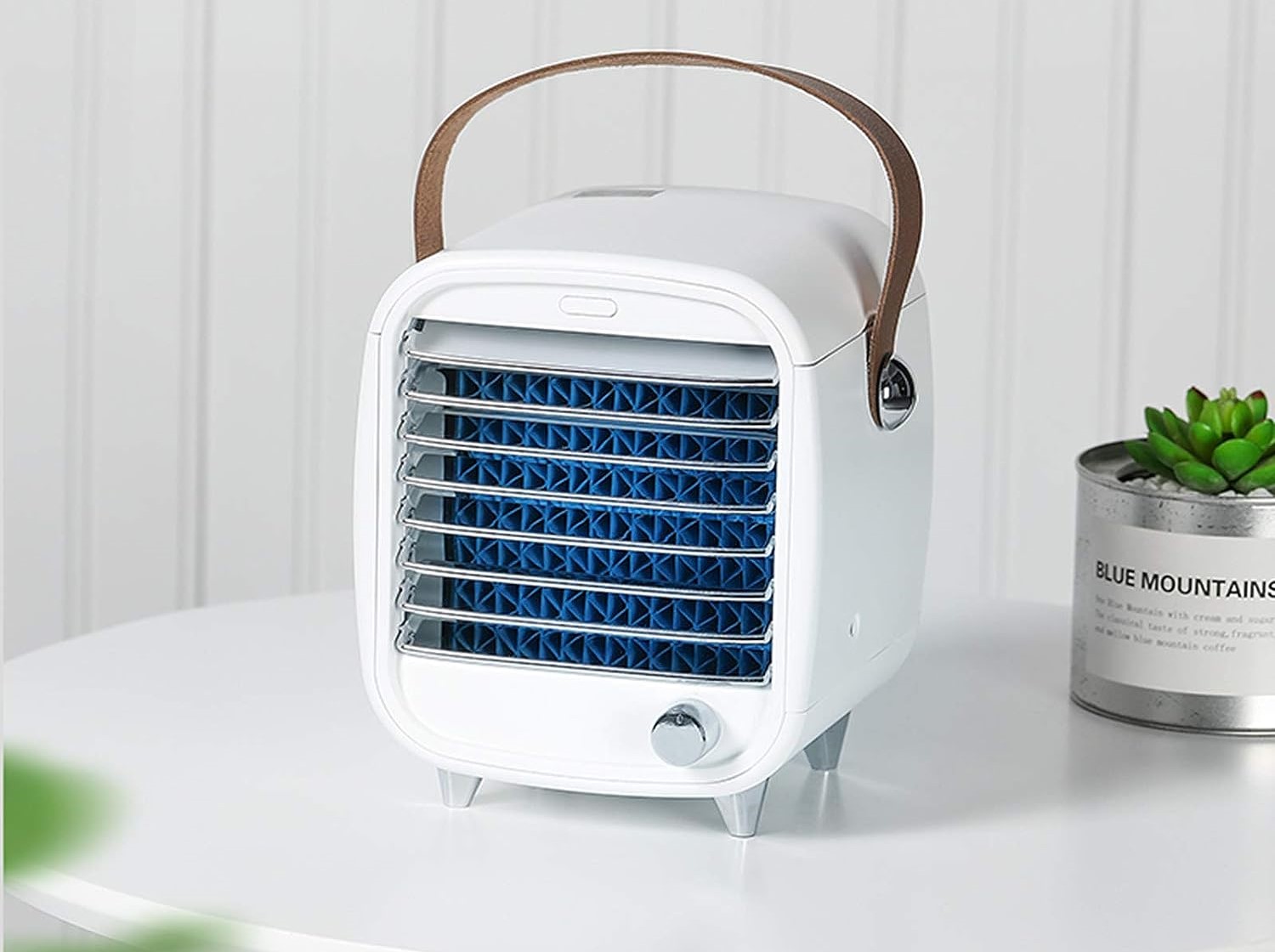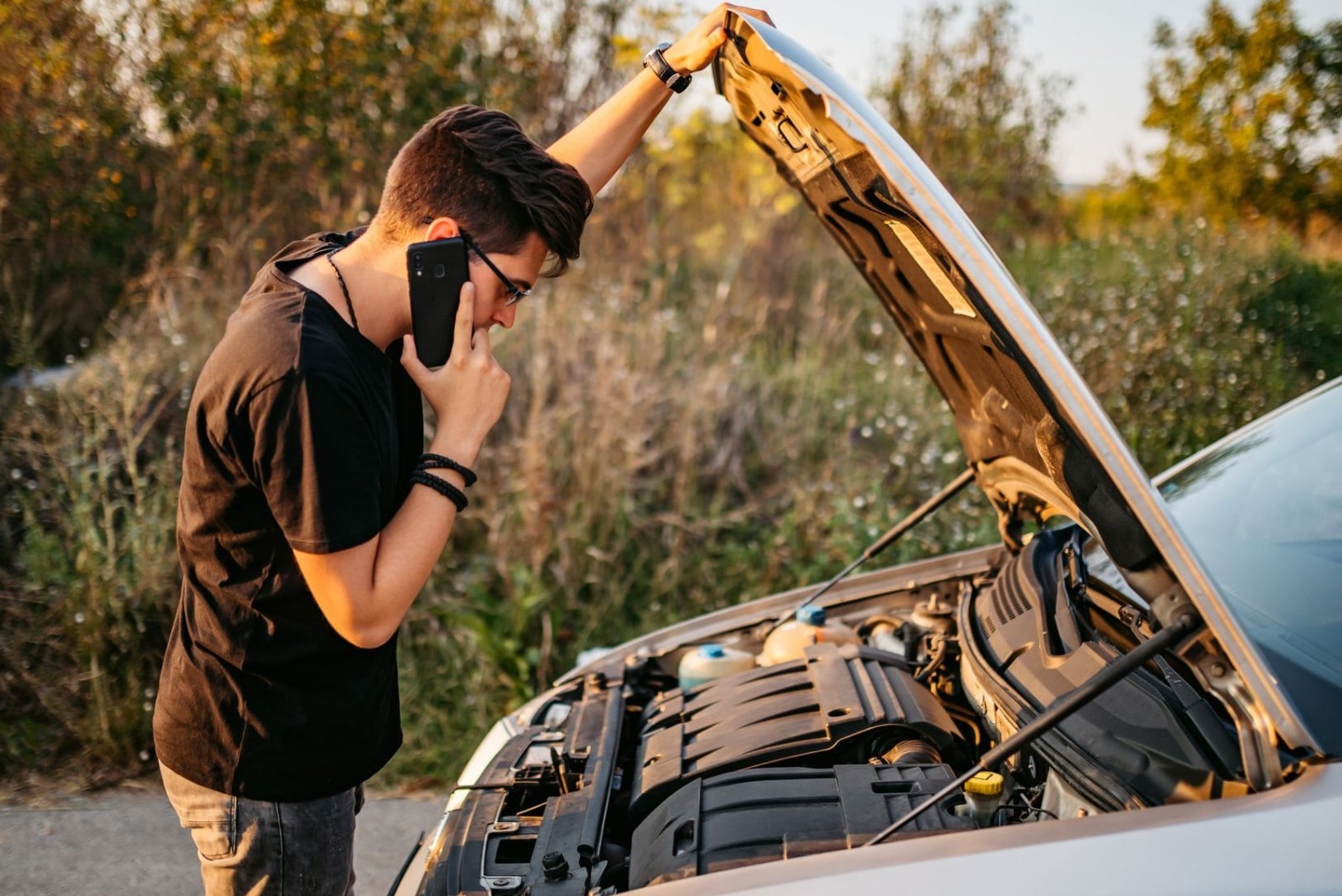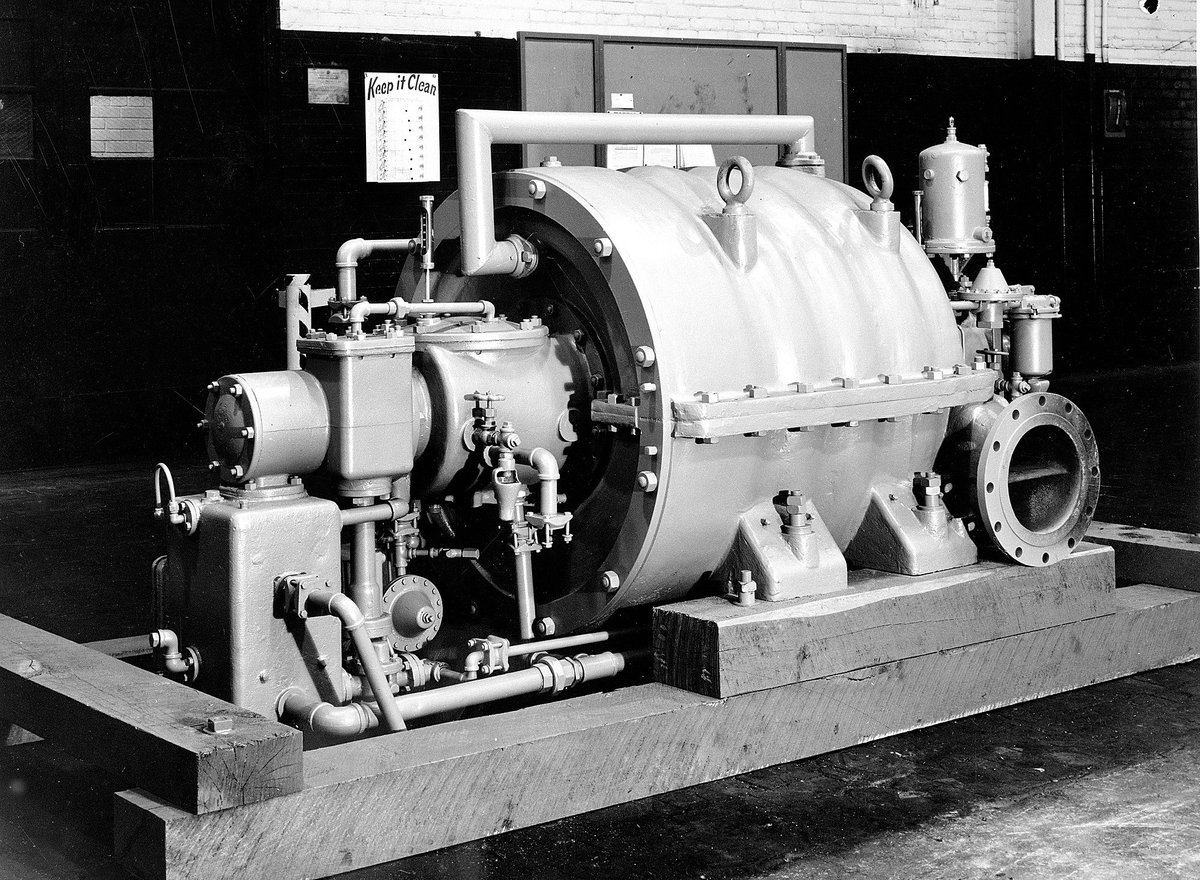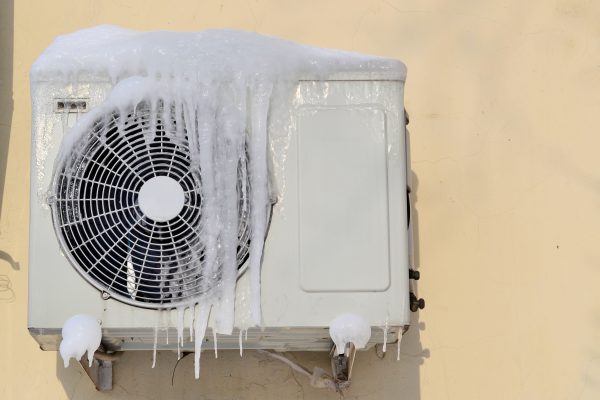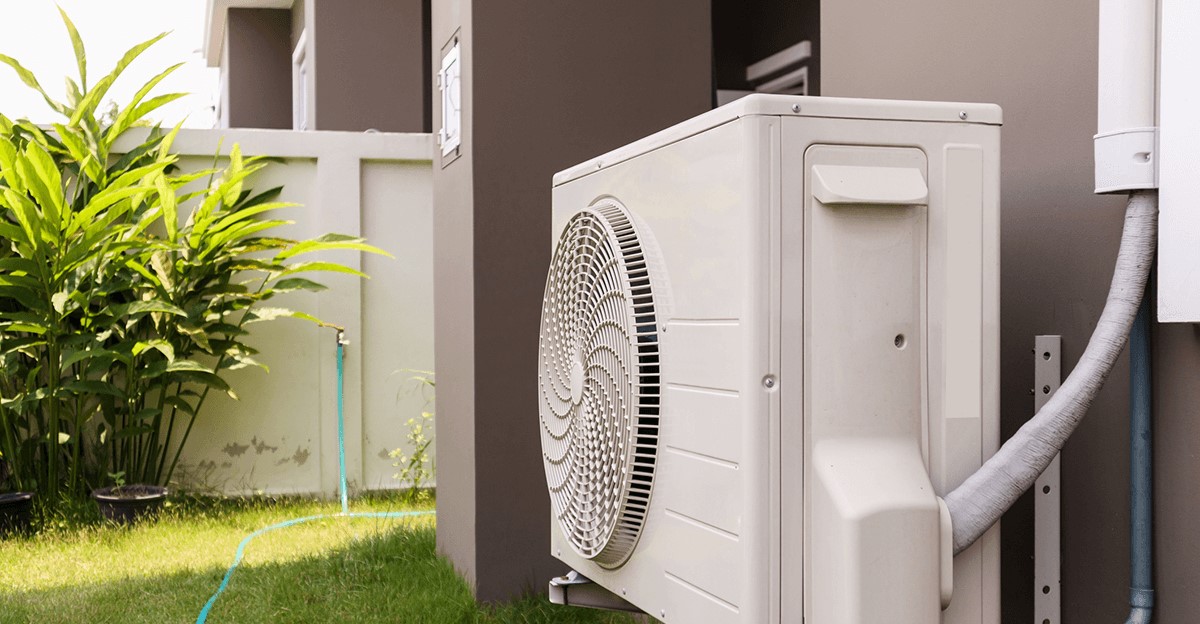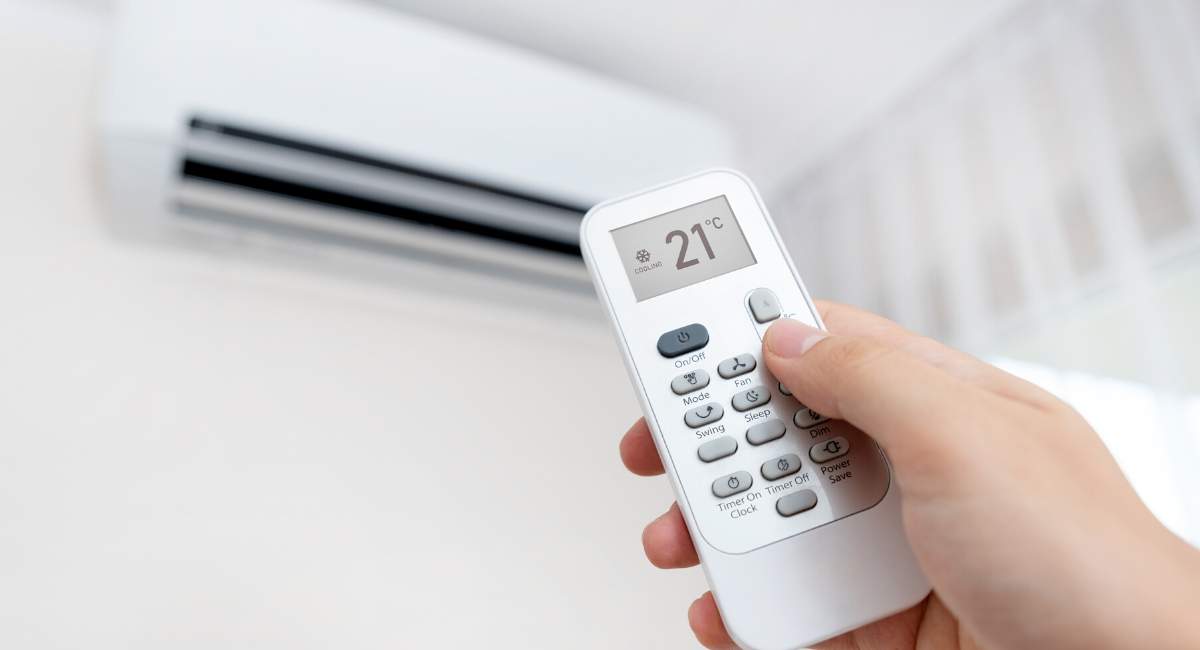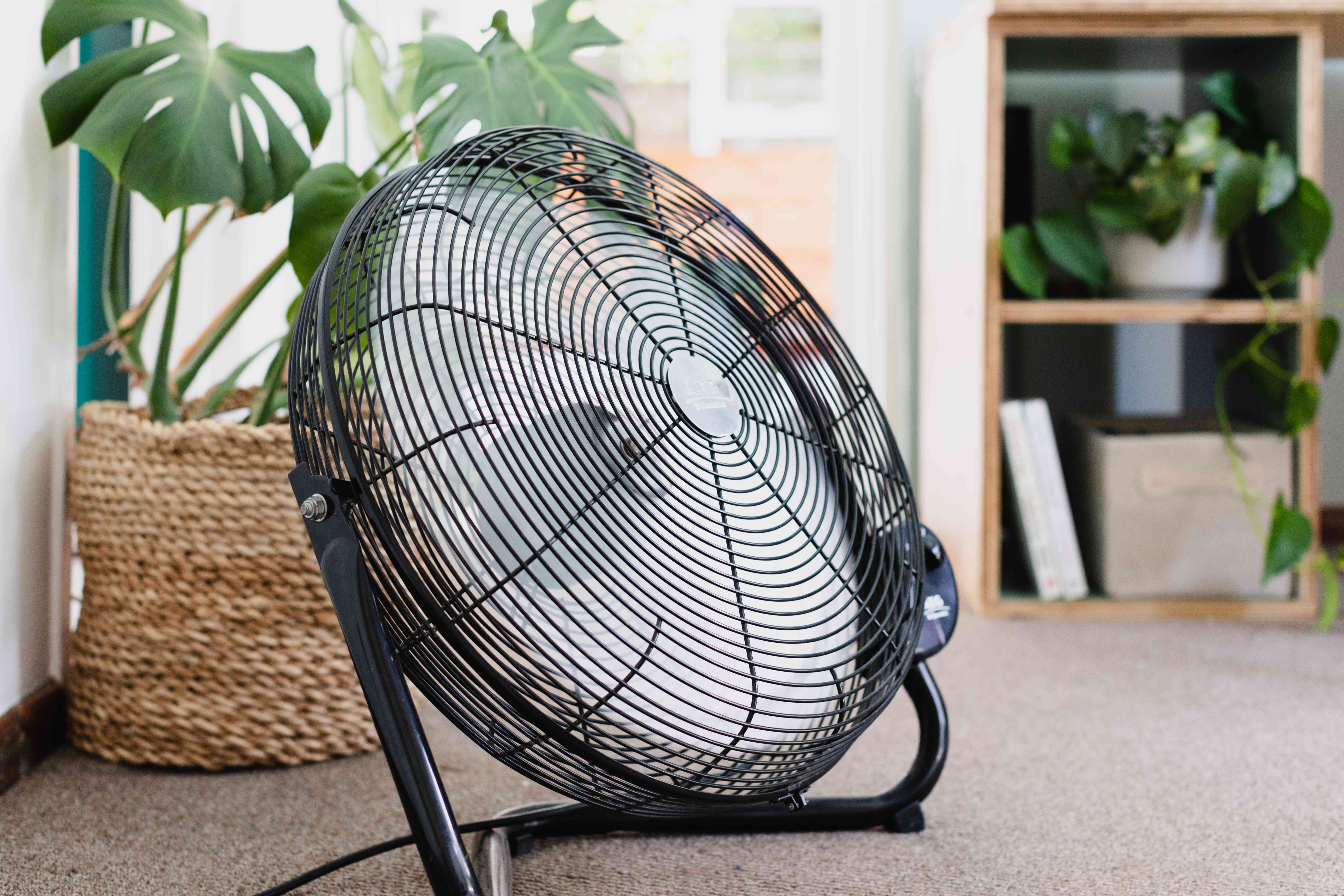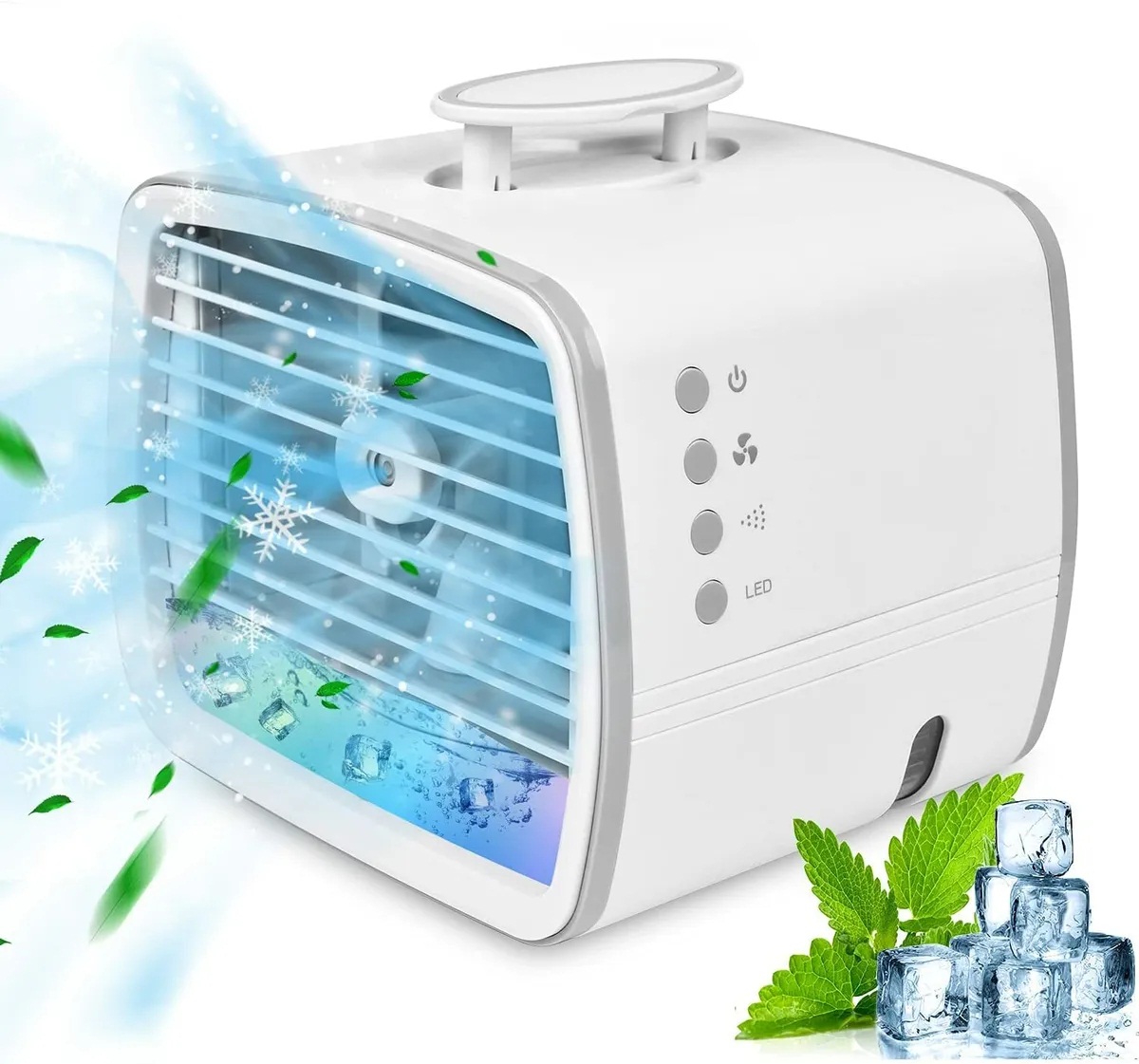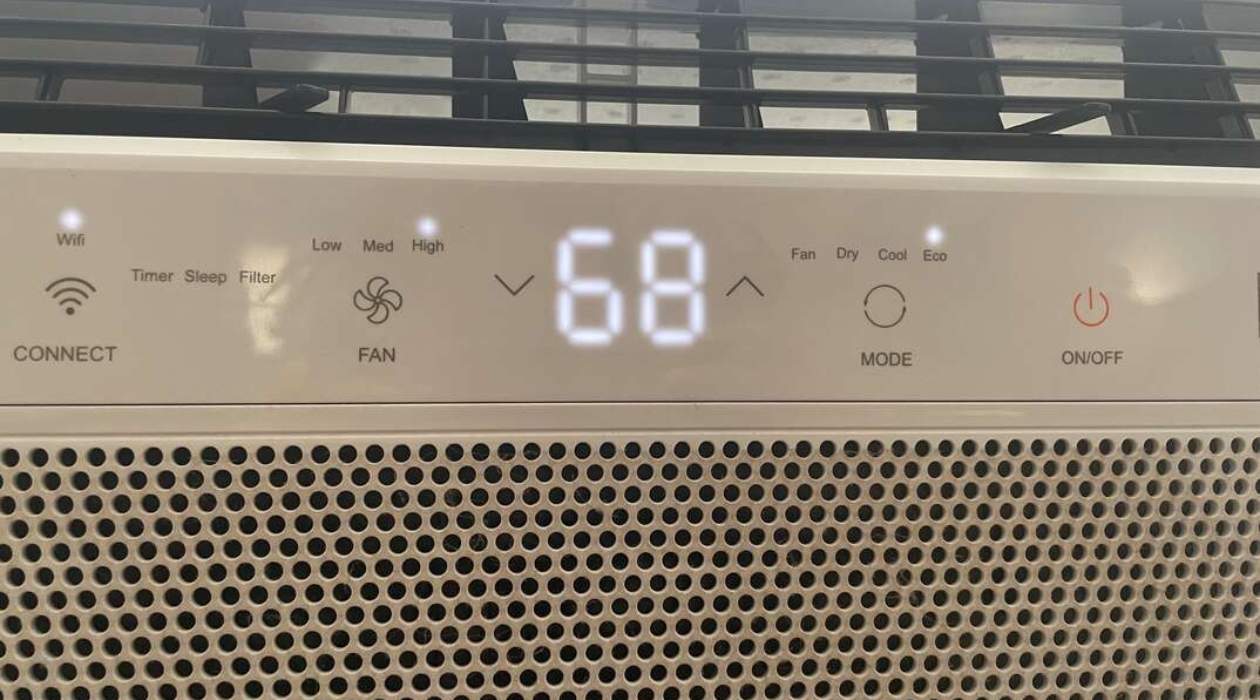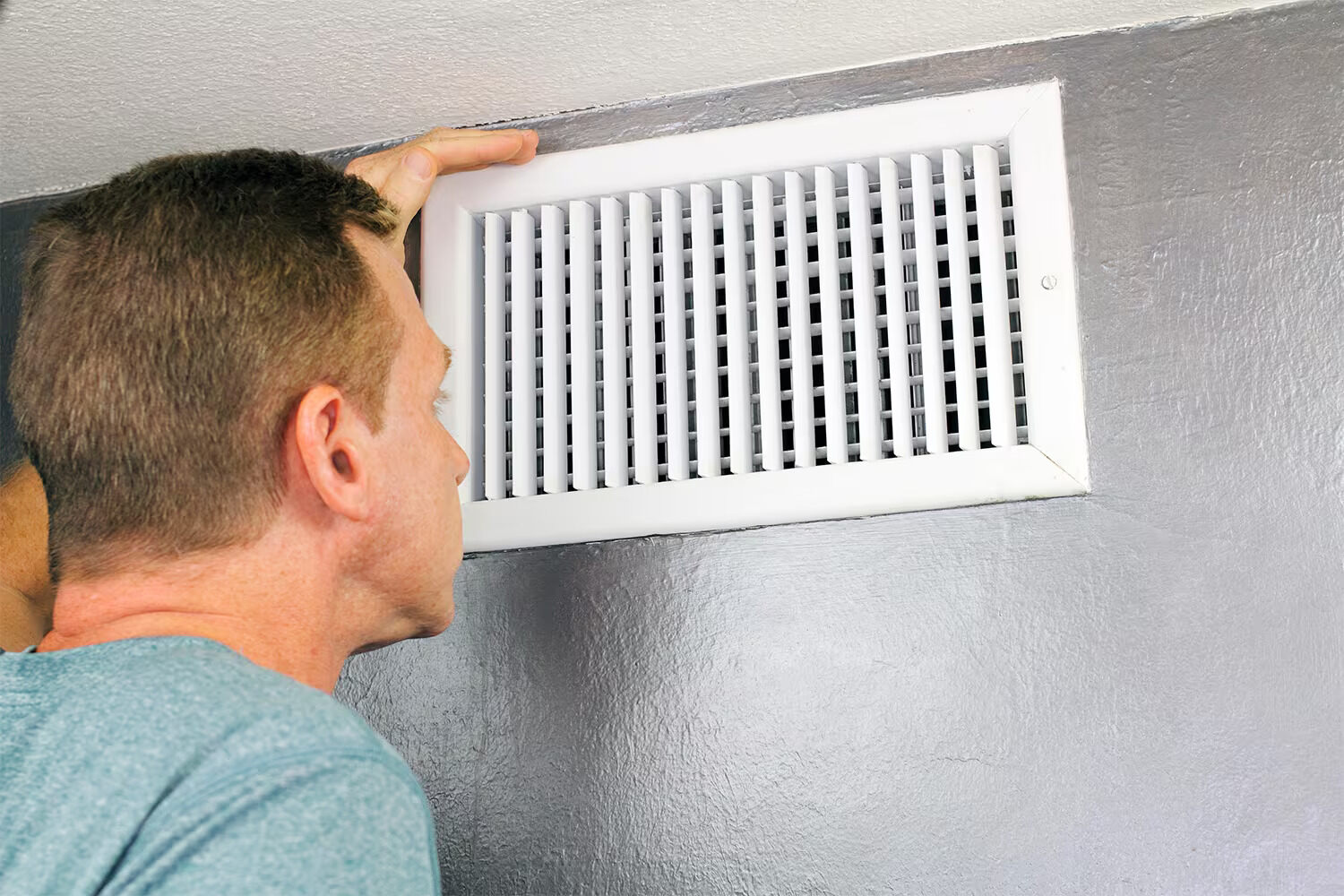Home>Home Maintenance>What To Do When Your Air Conditioner Is Not Cooling
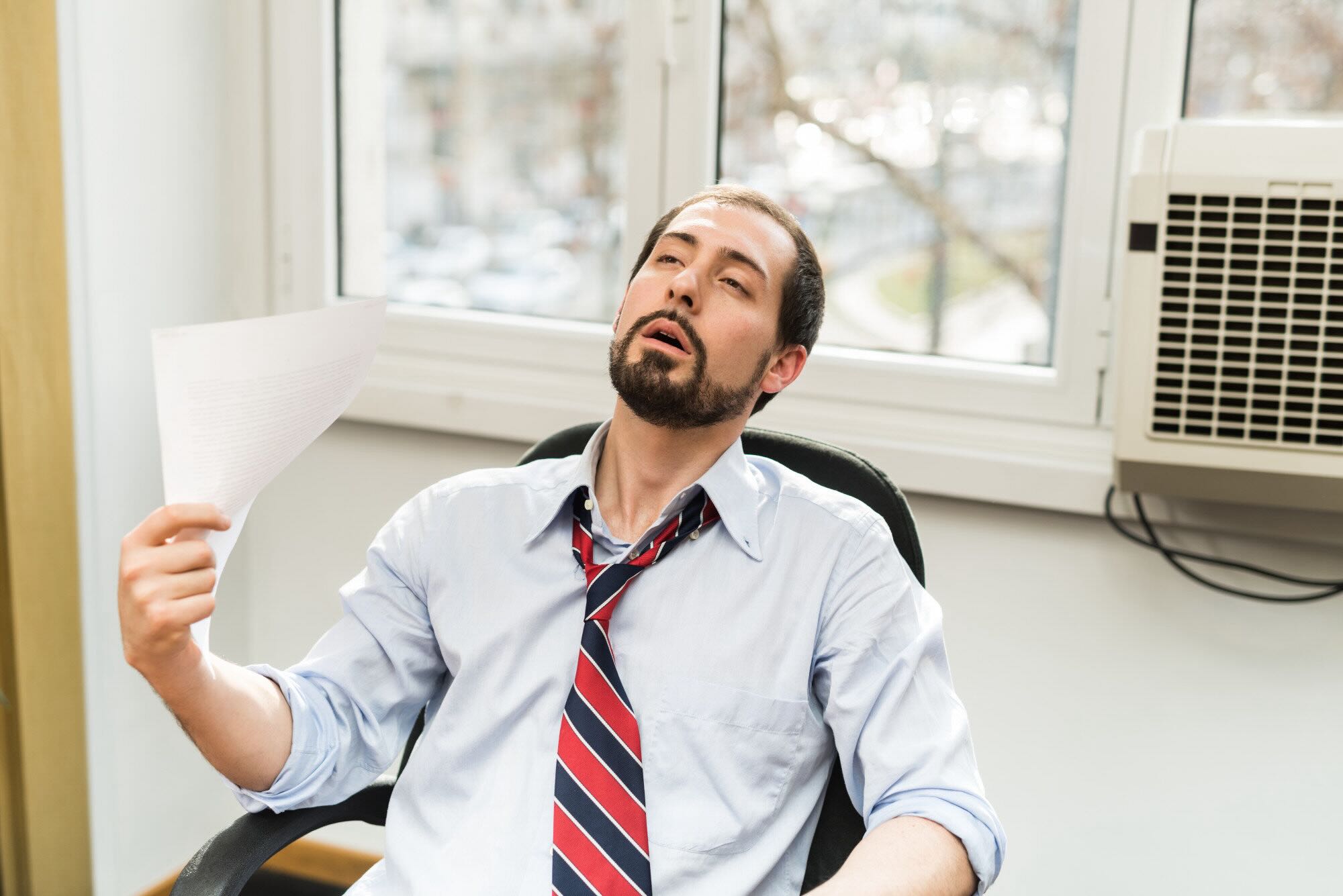

Home Maintenance
What To Do When Your Air Conditioner Is Not Cooling
Modified: October 20, 2024
Find expert advice and practical solutions to fix your air conditioner and restore its cooling efficiency with our home maintenance tips. Don't let the heat get the best of you, get your AC back on track today!
(Many of the links in this article redirect to a specific reviewed product. Your purchase of these products through affiliate links helps to generate commission for Storables.com, at no extra cost. Learn more)
Introduction
Welcome to our comprehensive guide on what to do when your air conditioner is not cooling properly. As the temperature rises, a malfunctioning AC can not only lead to discomfort, but also impact your home’s energy efficiency. Understanding the possible causes of this issue and knowing how to troubleshoot them can help you ensure your AC unit runs smoothly and keeps your home cool and comfortable.
There are several reasons why your air conditioner may not be cooling effectively. It could be due to a dirty air filter, low refrigerant levels, a faulty thermostat, blocked air vents, compressor issues, damaged or leaky ducts, or even electrical problems. Identifying the root cause is the first step to resolving the problem and getting your AC back to its optimal performance.
In this article, we will explore each of these potential causes in more detail and provide troubleshooting steps to help you address them. By following these steps, you can save money on unnecessary service calls and potentially avoid more serious AC problems down the line.
Key Takeaways:
- Regularly cleaning or replacing your air filter can improve your AC’s cooling performance and indoor air quality, ensuring a comfortable and healthy home environment.
- Addressing potential issues such as low refrigerant levels, faulty thermostats, and blocked air vents can optimize your AC’s cooling efficiency, keeping your home comfortable during hot weather.
Read more: What Does An Air Conditioner Do?
Possible Causes of Air Conditioner Not Cooling
When your air conditioner is not cooling as it should, there can be various underlying causes. Understanding these causes can help you pinpoint the issue and take appropriate action. Here are some common reasons why your AC may not be cooling effectively:
- Dirty Air Filter: A dirty air filter can restrict the airflow, making it difficult for cool air to circulate throughout your home. This can put added strain on the AC unit and result in reduced cooling performance. Regularly changing or cleaning your air filters is essential to maintain optimum airflow and keep your AC running efficiently.
- Low Refrigerant Levels: Refrigerant is responsible for absorbing heat from your indoor air and releasing it outside. If your AC is low on refrigerant, it won’t be able to effectively remove heat from your home, resulting in insufficient cooling. Low refrigerant levels may indicate a leak in the system, which should be promptly repaired by a qualified technician.
- Faulty Thermostat: Sometimes, the issue may lie with the thermostat rather than the AC unit itself. A malfunctioning thermostat can cause the AC to turn on and off at irregular intervals or fail to reach the desired temperature. Checking the thermostat settings, calibrating it, or replacing it if necessary can often resolve this issue.
- Blocked Air Vents: Blocked or obstructed air vents can restrict the airflow and prevent cool air from reaching your living spaces. Ensure that all vents are open and unobstructed by furniture, curtains, or other objects to allow for proper air circulation.
- Compressor Issues: The compressor is a vital component of your AC system that helps circulate refrigerant and facilitate heat exchange. If the compressor is faulty or not functioning optimally, it can hinder the cooling process. Compressor issues may require professional inspection and repair.
- Damaged or Leaky Ducts: Cracks, gaps, or leaks in your ductwork can cause cool air to escape before it reaches your living spaces. This can result in poor cooling performance and energy wastage. Sealing or repairing damaged ducts can significantly improve your AC’s cooling efficiency.
- Electrical Problems: Electrical issues, such as tripped breakers or faulty wiring, can disrupt the proper functioning of your AC unit. If you suspect electrical problems, it is crucial to seek assistance from a qualified electrician to ensure your safety and prevent further damage to your AC system.
Remember, these are just some of the possible causes of your air conditioner not cooling. It’s essential to consult a professional HVAC technician to accurately diagnose and address the underlying issue with your AC unit.
Dirty Air Filter
A dirty air filter is one of the most common reasons why an air conditioner may not be cooling properly. Over time, the filter can become clogged with dust, debris, and pet dander, restricting the airflow and reducing the cooling efficiency of your AC.
When the air filter is dirty, the AC unit has to work harder to draw air through the system. This can lead to increased energy consumption and reduced cooling performance. Additionally, a dirty filter can result in poor indoor air quality, as it fails to effectively capture and filter out allergens and pollutants.
Fortunately, this issue is relatively easy to fix. Start by locating the air filter, which is usually found in the return air duct or near the air handler. Turn off the AC unit before removing the filter to avoid any potential damage.
Inspect the filter for dirt, dust, and other debris. If it appears dirty or clogged, it’s time to clean or replace it. Disposable filters should be replaced with a new one, while reusable filters can be cleaned according to the manufacturer’s instructions. Cleaning the filter may involve rinsing it with water or using a vacuum cleaner to remove the accumulated dirt.
Regular maintenance of the air filter is crucial to ensure optimal airflow and cooling efficiency. It is recommended to clean or replace the filter every one to three months, depending on the level of dust and debris in your home. Additionally, if you have pets or if there are smokers in the house, you may need to clean or replace the filter more frequently.
By keeping the air filter clean, you can significantly improve the cooling performance of your AC and promote better indoor air quality. It’s a simple but important step in maintaining a comfortable and healthy home environment.
Low Refrigerant Levels
Refrigerant is the substance responsible for absorbing heat from your indoor air and releasing it outside. It’s crucial for the proper functioning of your air conditioning system. If your AC is not cooling efficiently, one possible cause could be low refrigerant levels.
Low refrigerant levels can occur due to leaks in the refrigerant lines. Over time, these leaks can allow the refrigerant to escape, resulting in reduced cooling performance. It’s important to address this issue promptly, as running your AC with low refrigerant can cause further damage to the compressor and other components of the system.
If you suspect that your AC has low refrigerant levels, it’s best to contact a professional HVAC technician to inspect and recharge the system. They will be able to identify any leaks, repair them, and ensure that the correct amount of refrigerant is added to your AC unit.
Attempting to recharge the system yourself or adding refrigerant without addressing the underlying leak can be detrimental and may void your AC’s warranty. It’s essential to rely on trained professionals who have the knowledge and equipment to accurately diagnose and fix the problem.
Regular maintenance and inspections by professionals can help prevent leaks and identify any issues with refrigerant levels. If you notice that your AC is not cooling as it should, don’t ignore the problem. Contact a reputable HVAC technician to assess your system and restore it to its optimal performance.
Remember, refrigerant leaks should be addressed promptly to prevent further damage and ensure the efficiency and longevity of your air conditioning system.
Faulty Thermostat
A faulty thermostat can be another reason why your air conditioner is not cooling properly. The thermostat is responsible for sensing the temperature in your home and signaling the AC unit to turn on or off to maintain the desired temperature.
If the thermostat is not functioning properly, it may result in inaccurate temperature readings or failure to communicate with the AC unit. This can lead to inconsistent cooling or the AC not turning on at all, even when the temperature is too high.
To determine if the thermostat is the issue, start by checking the settings. Ensure that the thermostat is set to “cool” mode and that the temperature is set lower than the current room temperature. Adjust the temperature setting and see if the AC responds accordingly.
If the thermostat settings seem correct but the AC still doesn’t cool the room, you may need to recalibrate or replace the thermostat. Recalibrating the thermostat involves following specific instructions provided by the manufacturer to ensure accurate temperature readings.
If recalibration doesn’t resolve the issue, you may need to replace the thermostat altogether. Hiring a professional HVAC technician is recommended as they can safely reinstall the new thermostat and ensure it is correctly wired and calibrated.
It’s important to note that modern thermostats offer advanced features, such as programmable schedules and Wi-Fi connectivity, which can enhance energy efficiency and convenience. Upgrading to a smart thermostat can provide better control over your AC and allow you to monitor and adjust settings remotely from your phone.
By addressing thermostat issues, you can ensure proper communication between the thermostat and your AC unit, leading to more consistent and effective cooling throughout your home.
Read more: When Should You Replace Your Air Conditioner
Blocked Air Vents
Blocked air vents can significantly impact the cooling performance of your air conditioner. Air vents play a crucial role in distributing cool air throughout your home, and when they are obstructed or blocked, airflow is restricted, leading to inadequate cooling.
There are several reasons why air vents might become blocked. Furniture, curtains, or other objects positioned in front of the vents can obstruct the airflow, preventing cool air from reaching the desired areas of your home. In some cases, a buildup of dust, dirt, or debris can also clog the vents, hindering the flow of cool air.
To address blocked air vents, start by ensuring that there are no obstructions in front of the vents. Move any furniture or objects that might be blocking the airflow. This will allow the cool air to flow freely into your living spaces.
Next, check the vents for any accumulation of dust or debris. If you notice a buildup, carefully remove the vent covers and use a vacuum cleaner or a soft brush to clean away the dirt. Be sure to clean both the vent cover and the vent duct to ensure optimal airflow.
Regularly inspecting and cleaning your air vents is essential for maintaining the efficiency of your AC system. Depending on the level of dust and debris in your home, you may need to clean the vents every few months or as needed.
In addition to cleaning and unblocking air vents, it’s also a good idea to ensure that your vents are properly sized. Improperly sized vents can affect the airflow and cooling performance of your AC. If you suspect that your vents are undersized or improperly installed, it may be worthwhile to consult with an HVAC professional to evaluate and make any necessary adjustments.
By keeping your air vents unobstructed and clean, you can promote proper airflow and ensure that cool air is distributed effectively throughout your home, improving the overall cooling performance of your air conditioner.
Compressor Issues
The compressor plays a crucial role in the cooling process of your air conditioner. It is responsible for circulating refrigerant and facilitating heat exchange. If there are issues with the compressor, it can hinder the cooling performance and efficiency of your AC.
Several factors can contribute to compressor issues. Over time, wear and tear can cause the compressor to become less efficient or fail altogether. Electrical problems, such as voltage fluctuations or faulty wiring, can also impact the functioning of the compressor. Additionally, if the compressor is not properly maintained or lubricated, it can lead to compressor failures.
If there are problems with the compressor, you may notice various signs, such as unusual noises coming from the AC unit, the system not cooling effectively, or the unit frequently cycling on and off. Compressor issues require professional inspection and repair, as they can be complex and dangerous to handle without proper knowledge and tools.
When you suspect compressor issues, it’s essential to contact a qualified HVAC technician. They will perform a thorough diagnosis, checking the electrical connections, compressor motor, and refrigerant levels. If a compressor failure is confirmed, it may need to be replaced.
Compressor replacement is a significant repair that should be performed by a trained professional. Attempting to replace the compressor yourself can result in further damage to the AC system and may even pose safety risks. Trusting an experienced technician ensures that the replacement is done correctly and that the new compressor is compatible with your specific AC unit.
Regular maintenance of your AC system, including annual inspections by a professional, can help identify potential compressor issues early on. Additionally, ensuring proper lubrication of the compressor and addressing any electrical problems promptly can help extend its lifespan and prevent major failures.
By addressing compressor issues promptly and relying on professional expertise, you can restore the cooling performance of your air conditioner and ensure the longevity of your HVAC system.
Damaged or Leaky Ducts
If your air conditioner is not cooling effectively, damaged or leaky ducts could be to blame. The ductwork in your home plays a crucial role in distributing cooled air from the AC unit to the different rooms. When the ducts are damaged or have leaks, cool air can escape before it reaches its intended destination, resulting in inefficient cooling.
Ductwork can become damaged due to a variety of reasons, including poor installation, rodents or pests in the ducts, or physical damage caused by renovations or accidents. Additionally, the seals or joints connecting the ducts may deteriorate over time, leading to leaks.
Identifying and fixing ductwork issues can significantly improve the cooling efficiency of your air conditioner. Start by inspecting the visible ducts in your home for signs of damage, such as disconnected sections, holes, or tears. Pay close attention to areas where ducts are located in attics, crawlspaces, or basements, as these may be more vulnerable to damage.
If you notice any visible damage, it’s best to hire a professional HVAC technician to assess and repair the ductwork. They have the expertise and tools necessary to properly seal or replace damaged sections of the ducts. They can also inspect the entire duct system to identify and address any hidden leaks.
Sealing or repairing damaged and leaky ducts not only improves the cooling performance of your AC but also helps with energy efficiency. When cool air is properly directed to the desired areas, the AC unit doesn’t have to work as hard to cool your home. This results in less energy wastage and lower utility bills.
Regular maintenance of your ductwork is also important. Ensure that the ducts are properly insulated to prevent heat gain, especially in unconditioned areas of your home. Additionally, consider scheduling professional duct cleaning every few years to remove accumulated dirt, dust, and allergens.
By addressing damaged or leaky ducts, you can optimize the cooling efficiency of your air conditioner and create a more comfortable indoor environment.
Electrical Problems
Electrical problems can significantly impact the performance of your air conditioner and lead to reduced cooling effectiveness. Various electrical issues can arise, causing your AC to malfunction or fail to cool properly.
If you notice that your air conditioner is not cooling as it should, it’s important to rule out any electrical problems. Here are some common electrical issues that can affect the performance of your AC:
- Tripped Breakers: Your AC unit is typically connected to a dedicated circuit breaker. If this breaker trips, it can disrupt the power supply to the AC, causing it to stop cooling. Check the breaker panel and reset any tripped breakers related to the AC. If the breaker continues to trip, it may indicate a more significant electrical issue that requires professional attention.
- Faulty Wiring: Faulty wiring within the AC unit or in the electrical system of your home can cause intermittent power supply or inadequate voltage, affecting the cooling performance. Improper wiring can also be a safety hazard. It is crucial to have a licensed electrician inspect the wiring and make any necessary repairs or replacements.
- Capacitor Issues: Capacitors are electrical components that help start the motors in your AC unit. If the capacitors are faulty or worn out, the motors may not start properly, leading to insufficient cooling. A professional HVAC technician can test and replace faulty capacitors to ensure that the motors function correctly.
- Thermostat Wiring Problems: If there are issues with the wiring connecting the thermostat to the AC unit, it can result in improper communication and disrupted cooling cycles. An HVAC technician can examine the thermostat wiring and make any necessary adjustments or repairs.
- Faulty Safety Switches: The safety switches in your AC system are designed to protect the unit from potential damage or hazards. If these switches are faulty or not functioning correctly, they may shut off the AC unit unnecessarily or prevent it from cooling properly. A professional technician can diagnose and replace any faulty safety switches.
Electrical problems can be complex and potentially dangerous to handle without the proper expertise. It’s crucial to contact a licensed electrician or HVAC technician to diagnose and resolve any electrical issues affecting your AC.
Regular maintenance and inspections by professionals can help detect and prevent electrical problems before they impact the cooling performance of your air conditioner. Promptly addressing any electrical issues ensures safe and efficient operation of your AC system.
Check the air filter in your air conditioner and replace it if it’s dirty. A dirty filter can restrict airflow and cause your AC to not cool properly.
Read more: When To Turn On The Air Conditioner
Troubleshooting Steps for Air Conditioner Not Cooling
If your air conditioner is not cooling properly, there are several troubleshooting steps you can take to identify and potentially resolve the issue. Here are some steps to follow:
- Check and Clean the Air Filter: Start by inspecting the air filter and cleaning or replacing it if necessary. A dirty filter can restrict airflow and reduce cooling efficiency.
- Verify Refrigerant Levels and Recharge if Necessary: Low refrigerant levels can hinder cooling performance. Consult a professional HVAC technician to check for leaks, repair any damage, and recharge the system if needed.
- Calibrate and Check Thermostat Settings: Ensure that the thermostat is set to “cool” mode and the temperature is set lower than the current room temperature. Recalibrate or replace the thermostat if it’s not functioning properly.
- Clear Blocked Air Vents: Remove any obstructions in front of the air vents to allow for proper airflow and distribution of cooled air throughout your home.
- Inspect and Repair Compressor Issues: If you suspect problems with the compressor, such as unusual noises or frequent cycling, contact a professional HVAC technician to diagnose and repair the issue.
- Seal or Repair Damaged Ducts: Examine the ductwork for any visible damage or leaks. Hire a professional to seal or repair damaged ducts to ensure proper airflow and cooling efficiency.
- Examine and Fix Electrical Problems: If you suspect electrical issues, such as tripped breakers or faulty wiring, contact a licensed electrician or HVAC technician to diagnose and address the problem.
While these troubleshooting steps can help identify and resolve common issues, it’s important to remember that air conditioning systems are complex and may require professional expertise for accurate diagnosis and repair. If you’re not comfortable performing these steps yourself or if the problem persists, it’s best to contact a qualified HVAC technician to assess and fix the issue.
Regular maintenance and professional inspections can also help prevent cooling problems and ensure the optimal performance of your air conditioning system. Keeping up with routine maintenance tasks, such as cleaning or replacing filters and scheduling annual check-ups, can save you from costly repairs and help maintain a comfortable indoor environment.
Check and Clean the Air Filter
One of the first troubleshooting steps to take when your air conditioner is not cooling properly is to check and clean the air filter. The air filter plays a vital role in maintaining good indoor air quality and the efficient operation of your AC unit.
Over time, the air filter can become clogged with dust, dirt, pet dander, and other airborne particles. This buildup restricts the airflow, making it harder for your air conditioner to cool your home effectively. As a result, your AC may run longer, consume more energy, and fail to reach the desired temperature.
To check the air filter, you’ll need to locate it, which is typically near the air handler or in the return air duct. On most air conditioners, the filter is easily accessible and can be removed with ease.
Once you have the air filter in hand, inspect it for dirt, dust, and debris. If it appears dirty or clogged, it’s time to clean or replace it. Disposable filters should be replaced with a new one, while reusable filters can be cleaned according to the manufacturer’s instructions.
Cleaning the filter typically involves rinsing it with water or using a vacuum cleaner to remove the accumulated dirt. Ensure the filter is completely dry before reinstalling it in the air conditioner.
It’s important to note that the frequency of cleaning or replacing the air filter depends on various factors, such as the type of filter, the air quality in your home, and the presence of pets. In general, it’s recommended to inspect the filter every one to three months and clean or replace it as needed.
Keeping the air filter clean and free from debris is crucial for maintaining proper airflow and maximizing the cooling efficiency of your air conditioner. Not only does this help with cooling performance, but it also improves indoor air quality by capturing and filtering out allergens, dust, and other pollutants.
Regularly checking and cleaning or replacing your air filter is a simple yet effective way to ensure that your air conditioner operates optimally, providing cool and clean air throughout your home.
Verify Refrigerant Levels and Recharge if Necessary
Another troubleshooting step to take when your air conditioner is not cooling properly is to verify the refrigerant levels and recharge the system if necessary. Refrigerant is the substance responsible for absorbing heat from your indoor air and releasing it outside, allowing your AC to cool your home.
Low refrigerant levels can occur due to leaks in the refrigerant lines. Over time, these leaks can cause the refrigerant to escape, resulting in reduced cooling performance. It’s important to address this issue promptly since running your AC with low refrigerant can cause further damage to the compressor and other components of the system.
To determine if your AC has low refrigerant levels, it’s best to contact a professional HVAC technician. They have the tools and knowledge to accurately assess the system and check the refrigerant levels. Using pressure gauges and other specialized equipment, they can identify any leaks, repair them, and ensure that the correct amount of refrigerant is added to your AC unit.
Recharging the refrigerant is not a DIY task and should only be performed by a trained professional. Attempting to recharge the system yourself or adding refrigerant without addressing the underlying leak can lead to further damage and may void your AC’s warranty.
Regular maintenance and inspections can help prevent refrigerant leaks. However, if you notice that your AC is not cooling as it should, don’t ignore the problem. Contact a reputable HVAC technician to evaluate your system and determine if refrigerant recharge is necessary.
By ensuring that the refrigerant levels are correct, you can optimize the cooling performance of your air conditioner. This means your AC unit will be able to remove heat effectively and provide a comfortable indoor environment.
Remember, refrigerant leaks should be addressed promptly to prevent further damage and ensure the efficiency and longevity of your air conditioning system. Leave the refrigerant testing and recharge to the professionals for accurate diagnosis and solution implementation.
Calibrate and Check Thermostat Settings
If your air conditioner is not cooling properly, it’s essential to calibrate and check the thermostat settings. The thermostat is responsible for sensing the temperature in your home and signaling the AC unit to turn on or off to maintain the desired temperature.
A faulty or inaccurate thermostat can lead to inconsistent cooling or the AC not turning on at all, even when the temperature is too high. To ensure that the thermostat is functioning correctly, follow these steps:
- Check the Thermostat Settings: Start by verifying that the thermostat is set to “cool” mode. It may seem obvious, but sometimes the setting can accidentally be changed. Also, ensure that the temperature setting is lower than the current room temperature to signal the AC to start cooling.
- Calibrate the Thermostat: If you suspect that the thermostat is not accurately sensing the temperature, you can attempt to recalibrate it. Refer to the manufacturer’s instructions for your specific thermostat model, as the calibration process may vary. Typically, it involves adjusting the thermostat’s internal settings to match the actual temperature in your home.
- Consider Thermostat Replacement: If recalibrating the thermostat doesn’t resolve the issue, it may be time to consider replacing it. Over time, thermostats can lose accuracy or develop faulty readings. Upgrading to a programmable or smart thermostat can provide more precise temperature control and energy-saving features.
It’s important to note that thermostat wiring can be a complex system. If you are not familiar with electrical work, it’s best to leave thermostat calibration or replacement to a professional HVAC technician. They have the expertise to safely handle the wiring and ensure accurate temperature control.
By calibrating or replacing the thermostat as needed, you can ensure proper communication between the thermostat and your AC unit. This will lead to more accurate temperature readings and consistent cooling throughout your home.
Remember to consult with a professional if you’re unsure about the thermostat’s functionality or if the issue with your AC persists. They can provide further guidance and perform any necessary repairs or replacements to restore optimal cooling performance.
Read more: Why Is My Air Conditioner Fan Not Working
Clear Blocked Air Vents
If your air conditioner is not cooling properly, one possible reason is blocked air vents. Air vents play a crucial role in distributing cool air from your AC unit throughout your home. When these vents are blocked or obstructed, the airflow is restricted, leading to insufficient cooling in certain areas.
Blocked air vents can occur for several reasons. Furniture, curtains, or other objects placed in front of the vents can obstruct the airflow, preventing cool air from reaching the desired areas of your home. Additionally, a buildup of dust and debris can accumulate in the vents over time, restricting the airflow even further.
Here’s how you can clear the blocked air vents:
- Check for Obstructions: Start by inspecting each air vent in your home. Remove any furniture, curtains, or other objects that are blocking the vents. Make sure the area surrounding the vents is clear to allow unrestricted airflow.
- Clean the Vents: Dust and debris can accumulate on the vent covers and inside the vents over time. Clean the vent covers using a vacuum cleaner or a soft brush to remove any dust or dirt. You can also use a damp cloth to wipe down the vent covers for a thorough clean.
- Clean the Ducts: If you suspect a significant buildup of dust or debris inside the ductwork, it may be beneficial to have the ducts professionally cleaned. A professional duct cleaning service can remove accumulated dirt, allergens, and other pollutants, improving the overall airflow and air quality in your home.
Regularly clearing blocked air vents is crucial for maintaining proper airflow and cooling efficiency. It allows cool air to reach each room and ensures that your air conditioner can effectively cool your entire home.
In addition to clearing blocked air vents, it’s also important to ensure that your air vents are properly sized. Improperly sized vents can impact the airflow and cooling performance of your AC system. If you suspect that your vents are undersized or incorrectly installed, consider consulting with an HVAC professional to evaluate and make any necessary adjustments.
By clearing blocked air vents and ensuring proper airflow, you can optimize the cooling performance of your air conditioner and create a more comfortable indoor environment for you and your family.
Inspect and Repair Compressor Issues
If your air conditioner is not cooling properly, it’s important to inspect and address any potential compressor issues. The compressor is a vital component of your AC system that circulates refrigerant and facilitates the cooling process. When the compressor is not functioning correctly, it can significantly impact the cooling performance of your air conditioner.
Here’s how you can inspect and repair potential compressor issues:
- Listen for Unusual Noises: Start by listening for any unusual noises coming from your AC unit. A malfunctioning compressor may produce grinding, rattling, or hissing sounds. If you notice any unusual noises, it’s an indication that there may be an issue with the compressor.
- Check the Compressor Motor: Inspect the compressor motor for any visible signs of damage, such as leaks, rust, or loose wires. Additionally, check if the motor is running hot or overheating, as this could indicate a problem. If you notice any visible issues or suspect compressor motor problems, it’s best to contact a professional HVAC technician for a detailed inspection and repair.
- Consult a Professional Technician: Compressor issues can be complex and potentially dangerous to handle without proper knowledge and tools. It’s recommended to contact a qualified HVAC technician to accurately diagnose and repair compressor problems. They have the expertise and experience to handle compressor repairs safely and effectively.
- Consider Compressor Replacement: Depending on the severity of the compressor issues, it may be necessary to replace the compressor. The decision to repair or replace the compressor will depend on factors such as the age of the AC unit, the cost of repairs, and the availability of replacement parts. A professional technician can provide guidance on whether a repair or replacement is the best course of action for your specific situation.
Regular maintenance of your air conditioning system is crucial for preventing compressor issues. By scheduling routine inspections and servicing, you can identify any potential problems early on and address them before they escalate.
Remember, attempting to repair the compressor yourself without the necessary knowledge and tools can lead to further damage and may void any existing warranties. It’s best to rely on trained professionals to diagnose and repair compressor issues and ensure the efficient operation of your air conditioner.
By inspecting and repairing compressor issues promptly, you can restore the cooling performance of your air conditioner and enjoy a comfortable indoor environment once again.
Seal or Repair Damaged Ducts
If your air conditioner is not cooling properly, damaged or leaky ducts could be the culprit. The ductwork in your home plays a crucial role in distributing cool air from your AC unit to different rooms. When the ducts are damaged or have leaks, cooled air can escape before reaching its intended destination, resulting in inefficient cooling.
Here’s how you can address damaged or leaky ducts:
- Inspect the Ductwork: Begin by inspecting the visible ducts in your home for any visible damage, such as disconnected sections, holes, or tears. Pay close attention to areas where ducts are located in attics, crawlspaces, or basements, as they may be more prone to damage.
- Seal Small Leaks: If you identify small leaks in the ductwork, you can seal them yourself using duct mastic or foil tape. Carefully apply the mastic or tape to the leaks, ensuring a proper seal. Avoid using duct tape, as it tends to deteriorate over time and may not provide a long-lasting solution.
- Repair or Replace Damaged Sections: For more significant damage, it’s recommended to seek professional help. A qualified HVAC technician can repair or replace damaged sections of the ductwork to ensure proper airflow and cooling efficiency. They have the necessary tools and expertise to identify and address complex ductwork issues.
- Consider Duct Insulation: In addition to sealing and repairing damaged ducts, consider adding insulation to the ductwork. Proper insulation helps prevent heat gain or loss in the ducts, maintaining the temperature of the cooled air and improving overall cooling efficiency.
Sealing or repairing damaged and leaky ducts is essential for maintaining proper airflow and maximizing the cooling efficiency of your air conditioner. It allows the cooled air to reach its intended destination, ensuring that each room in your home receives the desired cooling.
While it’s possible to seal small leaks yourself, it’s best to consult with a professional HVAC technician for more complex repairs or if you suspect significant damage. They can evaluate the ductwork, identify any hidden leaks, and provide the necessary repairs to ensure optimal cooling performance.
Regular maintenance of your ductwork is also important. Consider scheduling professional duct cleaning every few years to remove accumulated dirt, dust, and allergens. Additionally, ensure that the ducts are properly insulated to prevent heat gain or loss, especially in exposed or unconditioned areas of your home.
By sealing or repairing damaged ducts, you can optimize the cooling efficiency of your air conditioner and create a more comfortable indoor environment for you and your family.
Examine and Fix Electrical Problems
If your air conditioner is not cooling properly, it’s important to examine and address any potential electrical problems. Electrical issues can disrupt the proper functioning of your AC unit and lead to reduced cooling effectiveness. Here’s how you can go about examining and fixing electrical problems:
- Check for Tripped Breakers: Start by checking the breaker panel for any tripped breakers related to your AC unit. Sometimes, a tripped breaker can cause the AC to stop working or reduce its cooling capacity. If you find a tripped breaker, reset it and monitor the AC to see if it resumes normal operation. However, if the breaker trips again, it may indicate a more significant electrical issue that requires professional attention.
- Inspect Wiring Connections: Examine the wiring connections within your AC unit to ensure they are secure and intact. Loose or damaged wiring can disrupt the flow of electricity and impair the normal functioning of the system. If you notice any loose wires or signs of damage, contact a licensed HVAC technician or electrician to address the issue.
- Address Faulty Wiring: Faulty wiring within your home’s electrical system can also impact the performance of your air conditioner. If you suspect an electrical issue beyond the AC unit itself, it’s crucial to contact a licensed electrician to inspect and address any wiring problems. They have the expertise to safely handle electrical work and ensure the safe and efficient operation of your AC system.
- Inspect Safety Switches: Safety switches in your AC system are designed to protect the unit from potential damage or hazards. If these switches are faulty or not functioning correctly, they may shut off the AC unit unnecessarily or prevent it from cooling properly. An HVAC technician can examine and replace any faulty safety switches, ensuring the uninterrupted operation of your air conditioner.
It’s important to note that working with electrical components can be dangerous and should be left in the hands of trained professionals. Attempting to address electrical problems without proper knowledge and expertise can lead to serious injuries or further damage to your AC system.
If you suspect electrical problems affecting your air conditioner, it’s best to consult with a licensed HVAC technician or electrician. They have the necessary knowledge and tools to accurately diagnose the issue and perform any repairs or replacements safely.
By examining and fixing electrical problems promptly, you can restore the proper functioning of your air conditioner and ensure efficient cooling performance. Ensure regular maintenance of your AC system, including annual inspections and professional servicing, to prevent electrical issues and maximize its lifespan.
Read more: What Does An Air Conditioner Compressor Do
Conclusion
When your air conditioner is not cooling properly, it can be frustrating and uncomfortable, especially during hot summer months. However, by troubleshooting and addressing the potential causes, you can restore your AC’s cooling efficiency and maintain a comfortable indoor environment.
In this comprehensive guide, we have explored the possible causes of air conditioner cooling issues, including dirty air filters, low refrigerant levels, faulty thermostats, blocked air vents, compressor issues, damaged or leaky ducts, and electrical problems. We have also provided a series of troubleshooting steps to help you identify and resolve these issues.
By regularly checking and cleaning the air filter, verifying refrigerant levels and recharging if necessary, calibrating and checking thermostat settings, clearing blocked air vents, inspecting and repairing compressor issues, sealing or repairing damaged ducts, and examining and fixing electrical problems, you can improve the cooling performance of your air conditioner.
Remember, while many troubleshooting steps can be done by homeowners, it’s important to consult with professionals for complex repairs, refrigerant recharges, or electrical issues. HVAC technicians and electricians have the expertise and tools to safely handle these tasks and ensure proper operation of your AC system.
Regular maintenance is also essential to prevent future cooling problems. Schedule annual inspections and servicing by professionals to detect and address issues before they escalate. Additionally, remember to clean or replace your air filters regularly and keep the area around your air vents clear to promote optimum airflow and cooling efficiency.
By following the troubleshooting steps outlined in this guide and investing in regular maintenance, you can ensure that your air conditioner runs smoothly, keeps your home cool and comfortable, and maximizes energy efficiency.
Stay proactive in maintaining your AC system, and don’t hesitate to seek professional help when needed. With these efforts, you’ll be able to enjoy reliable and effective cooling for years to come.
Frequently Asked Questions about What To Do When Your Air Conditioner Is Not Cooling
Was this page helpful?
At Storables.com, we guarantee accurate and reliable information. Our content, validated by Expert Board Contributors, is crafted following stringent Editorial Policies. We're committed to providing you with well-researched, expert-backed insights for all your informational needs.
